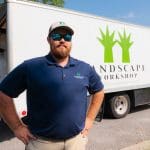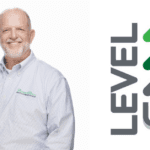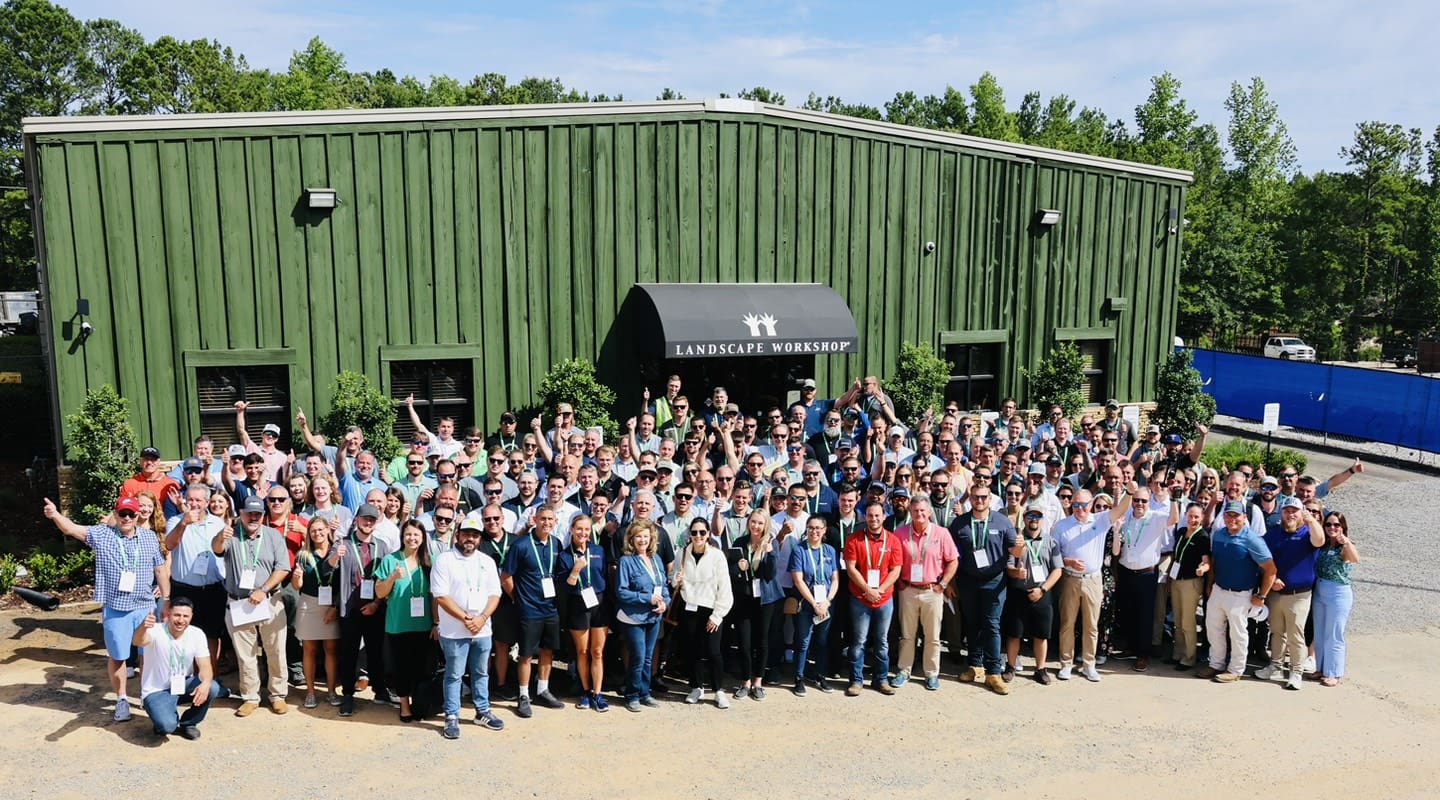
Landscape Workshop has been growing rapidly through strategic M&A, but there is far more to their success that attendees discovered during the NALP Field Trip to their facilities on June 11-12.
Based in Birmingham, Alabama, Landscape Workshop was founded in 1984 and currently serves 30 Southeastern markets. They provide commercial landscape maintenance and installation in Alabama, Georgia, Kentucky, Louisiana, Mississippi, South Carolina, Tennessee, and Florida.
The company is on track to go from $106 million in revenue to $150 million this year. Landscape Workshop has had a 35% growth rate for the past five years.
Host Marty Grunder with The Grow Group delved into Landscape Workshop’s metrics, growth & scaling strategies and their company culture.
Metrics Matter
One major aspect of Landscape Workshop’s business is that performance matters most. They share these metrics at the branch and individual level.
“How can we expect our people to deliver results when they don’t know what the score is,” says J.T. Price, CEO of Landscape Workshop.
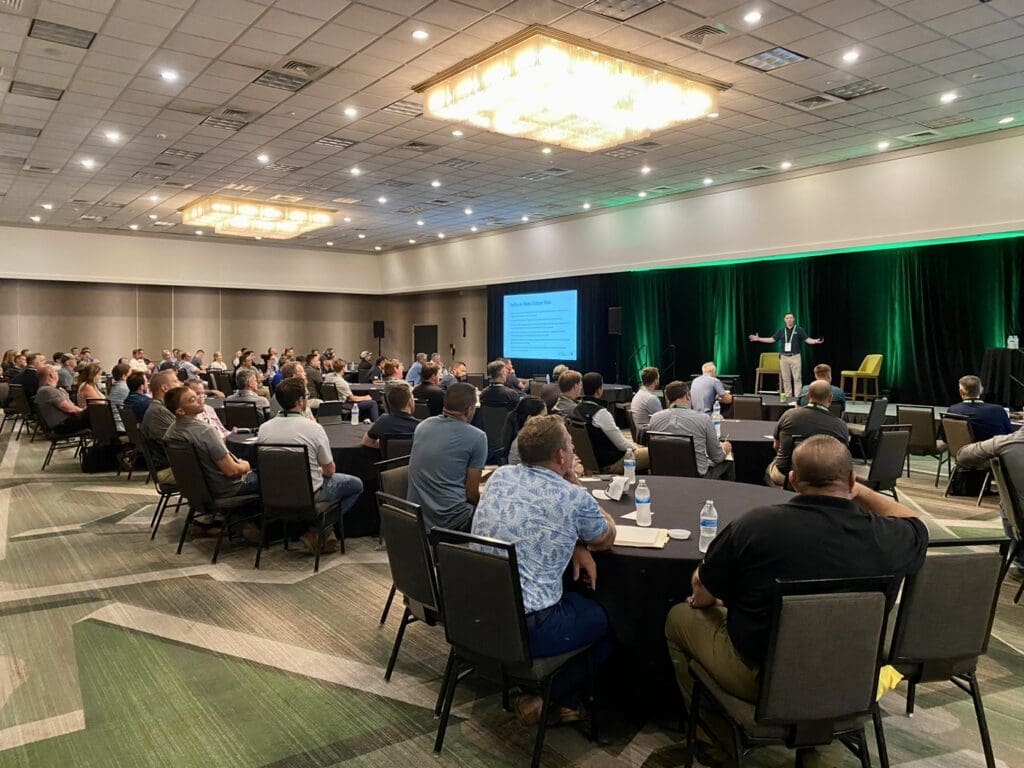
A successful metric to track is one that is reportable, allows for ownership and is actionable where it drives behavior. The company views metrics as a way to keep score, track outputs and manage behavior.
Joe Socolof, COO of Landscape Workshop, says you need to define what winning looks like at your company in order to determine the right metrics to monitor. Their company looks at their revenue and EBITDA, which shows their top-line growth and bottom-line margin, respectively.
Christianna Denelsbeck Rudder, CFO of Landscape Workshop, cautions you can focus on revenue or EBITDA at the detriment of the other.
Some of the metrics Landscape Workshop tracks include their customer retention rate, their Net Promoter Score, their contractual sales, and their penetration rate. On the individual level, the company tracks their business managers’ sales efforts and their results.
The company’s EBITDA is impacted by their labor efficiency, job profitability and culture. They track their labor efficiency by monitoring actual versus budgeted labor hours, headcount of employees versus revenue and skipped visits. Job profitability is tracked through revenue cost, gross profit and gross margin.
Landscape Workshop tracks their culture through their long-term employee turnover, total employee turnover, number of internal promotions and number of employee referrals.
Accountability Requires Action
With their performance metrics, Landscape Workshop has better accountability, which drives their decisions.
Price wants Landscape Workshop to be the best place in the industry for high performers, so he does not tolerate low performers. He works to ensure the low performers are uncomfortable until they improve or leave the organization.
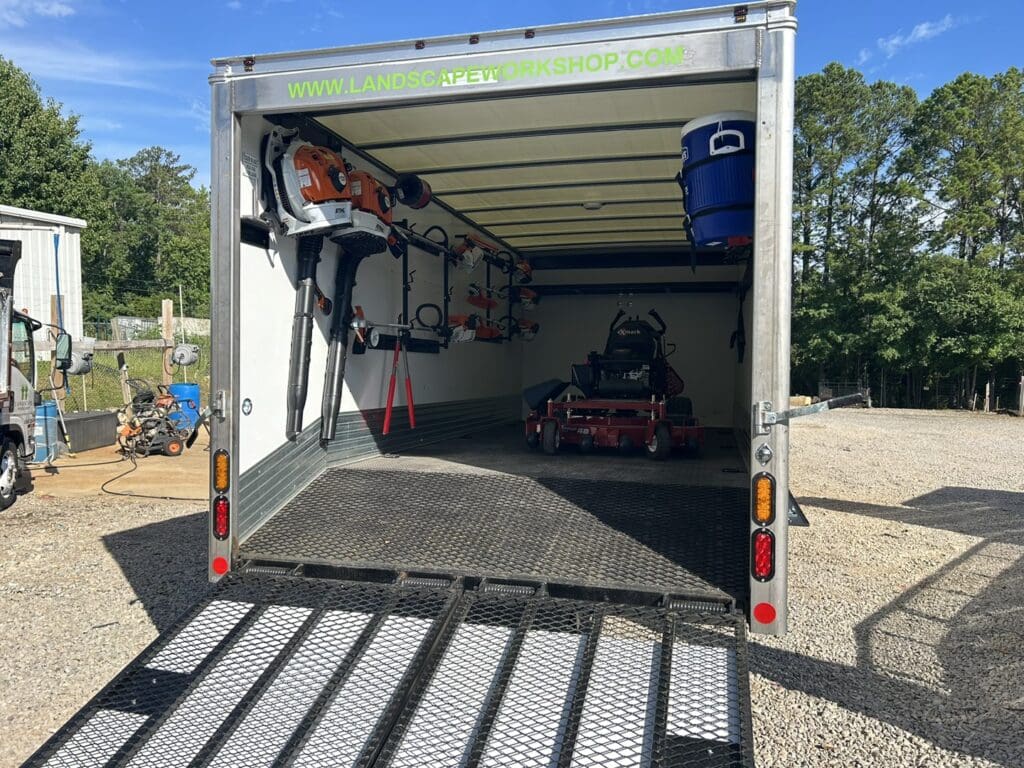
“If you tolerate mediocrity, the rest of your team will sink to their level,” Price says.
Previously, Price worked as a consultant for Fortune 500 companies and found them to be dens of mediocrity. He says there is always an excuse not to make the decision to get rid of poor performers. However, being reluctant to fire poor performers, no matter how nice of a person they are, negatively impacts the whole team.
“Whatever you allow, you encourage,” Grunder says.
Landscape Workshop conducts weekly one-on-ones with employees to discuss concerns, last week’s actions and metrics related to their performance. Account managers also have formal reviews twice a year where they can discuss big-picture goals.
Incentives Program
Landscape Workshop works hard to make their company a place their A players don’t want to leave. Price says their incentives program is strong, but outsiders often don’t believe it until they’ve reaped the rewards themselves.
The company offers both financial and non-financial incentives to their employees. Landscape Workshop’s financial rewards are directly tied to the company’s success, incentivizing everyone from the VPs to the account managers to perform to the best of their ability.
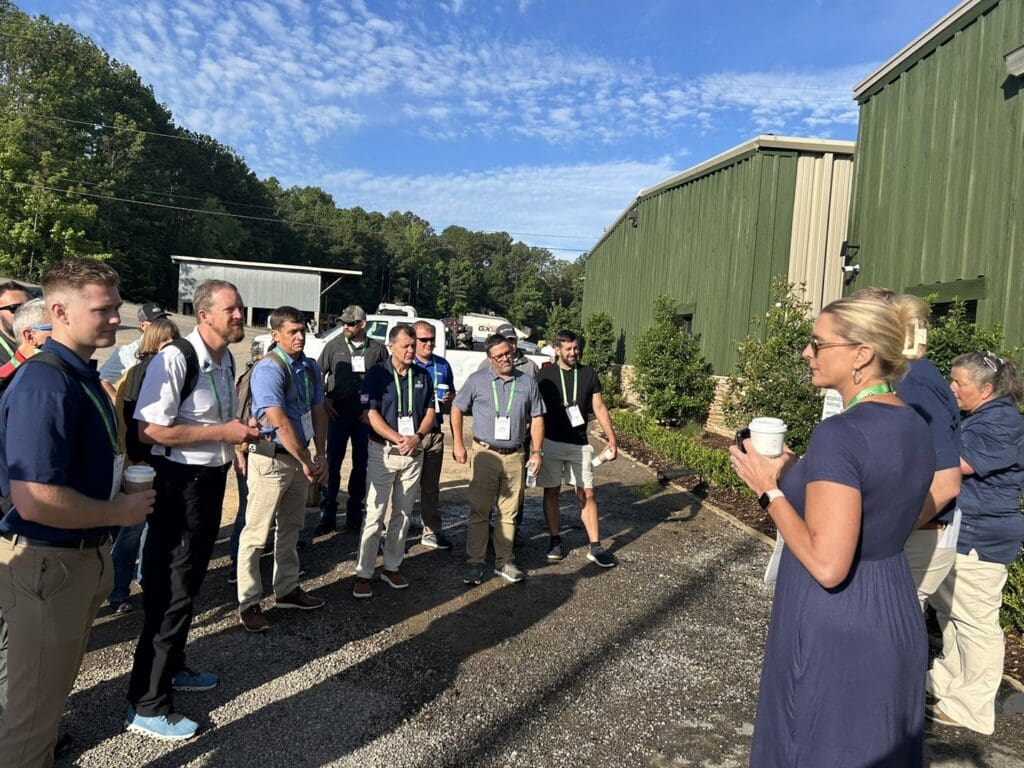
For instance, maintenance account managers’ annual target bonus is determined by the branch’s financial performance to budget and their personal customer retention. Landscape Workshop’s business development managers are paid 10% of the gross margin generated for 12 months for their new maintenance contracts sold to encourage them to sell profitable work.
Last year, the company paid over $975,000 in annual bonuses, with the highest account manager’s annual bonus being $10,166. They also paid $445,000 in business development manager commissions in 2023.
The company’s executive team and other key team members are equity holders. Price wants them to be invested in the business’s success and improvement.
On the non-financial side, employees can earn 20 days of PTO after eight years with the company and have the opportunity to move up in the company. They also recognize their employees with Lead Dog awards.
Price cautions that misalignment of employee incentives can lead to misdirected efforts that are not in the best interest of the company, poor financial results, unethical behavior and diminished motivation. He notes that some employees will always try to game the system and you need to review your incentives regularly to ensure they are driving the right behaviors.
“Any time there is a chink in your armor of your incentive system, everyone knows it automatically,” Price says.
One Culture
As Landscape Workshop grows and acquires more companies, maintaining their culture is critical. Price says that their mission, vision and core values help them maintain a consistent focus across all of their branches.
The company’s mission is to make their clients’ lives easier and their properties more beautiful by offering professional and trustworthy landscape services with proactive communication. Price says they are in the relationship business, not the landscape business.
“We get hired or fired based on making a property manager’s life easier,” Price says.
Landscape Workshop’s vision is to “Become unquestionably the most professional, trustworthy and profitable commercial company in the United States.”
Price says their vision is who they want to be when they grow up. Every couple of years Landscape Workshop sets a strategy statement of where they want to be next. While they have already reached their goal of $150 million in revenue by 2025, Price says they’re still working on reaching an 18% EBITDA margin.
The company’s core values include:
- We are the “Lead Dog.”
- We do the right thing.
- We are transparent.
- We invest in our people.
- We expect and reward high performance.
Some of the ways the company makes their culture real are by sharing performance data at the company, branch and individual levels. Their financial incentives are tightly aligned with their values, so high performers are rewarded.
These are just a few of the valuable takeaways attendees gleaned from the Landscape Workshop during Field Trip. Thank you to our partners Gravely and Heritage Landscape Supply.
Don’t miss the next Field Trip at Sebert Landscape in Chicago, Illinois, on Sept. 17-18. Register here!


